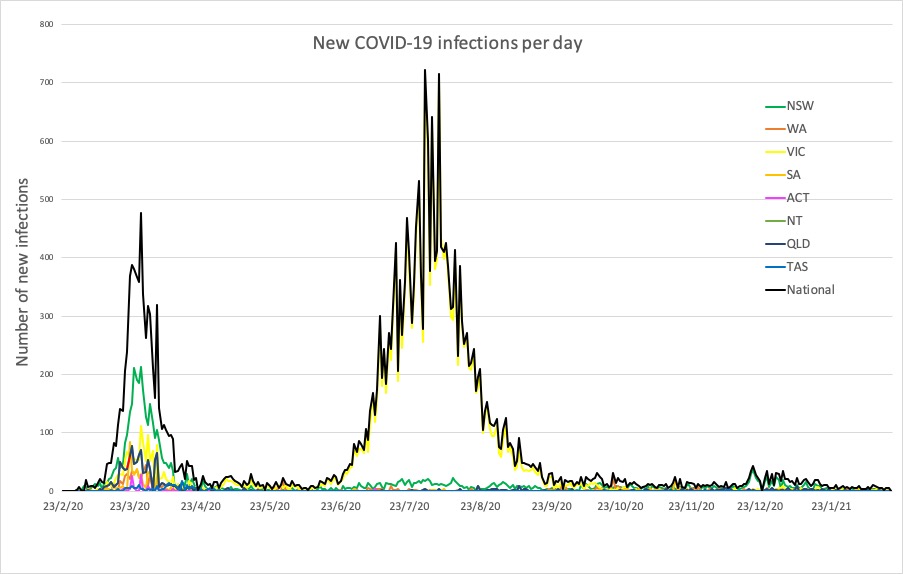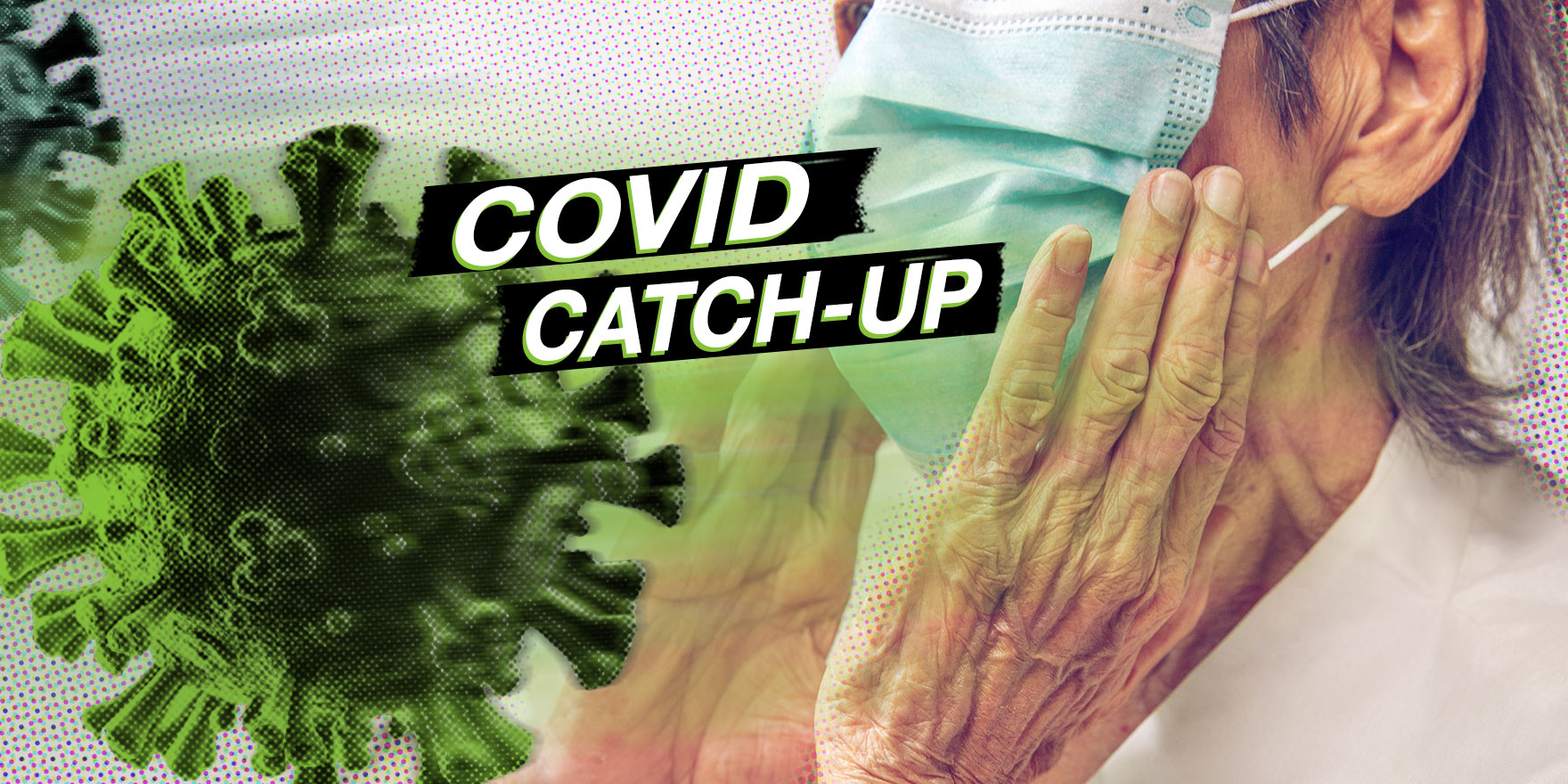And study finds no evidence of transmission from people with asymptomatic COVID-19.
Welcome to The Medical Republic’s COVID Catch-Up.
It’s the day’s COVID-19 news in one convenient post. Email bianca@biancanogrady.com with any tips, comments or feedback.
19 February
- Australia has shortage of ‘no dead space’ syringes, Nine newspapers report.
- Study finds no secondary transmission from people with asymptomatic COVID-19.
- Nearly one-third of people hospitalised with severe COVID-19 develop PTSD.
- Latest confirmed COVID-19 infection numbers from around Australia.
Australia is facing a shortage of ‘low dead space’ syringes, which could ensure the maximum number of vaccine doses are use from each vial, according to Nine newspapers.
There is apparently a worldwide shortage of the syringes, and while Australia’s supply has been ordered, they will not be available in time for the start of the vaccine rollout.
The syringes are designed to minimise the amount of vaccine fluid left in the needle, which would ensure that all six doses would be used from the vial. However federal Department of Health Secretary Brendan Murphy told Nine newspapers that existing syringes would be absolutely fine, and the department would not be holding providers to getting the full six doses from each vial.
A study of a COVID-19 outbreak in Germany found no evidence of transmission from asymptomatic individuals, with the majority of transmission events being associated with those in the presymptomatic phase of infection.
Writing in Emerging Infectious Diseases, researchers reported on the outbreak that began from a single individual who attended several carnival events in a rural district on 29 February 2020. By the end of March, 59 cases had been identified through contact tracing, which involved quarantining and testing all close contacts regardless of whether they were symptomatic.
Overall, 13% of the cases were asymptomatic, and there were no secondary infections – either in household or other close contacts – connected to these individuals. The authors found that around three-quarters of all secondary transmission resulted from contact with presymptomatic individuals.
“In conclusion, our study suggests that asymptomatic cases are unlikely to contribute substantially to the spread of SARS-CoV-2,” the authors wrote.
Nearly one-third of those hospitalised with severe COVID-19 infection have symptoms of post-traumatic stress disorder after discharge, a study has found.
A paper published in JAMA Psychiatry reported the results of a study of 381 people hospitalised in Rome with COVID-19, who were referred after discharge to a post-acute care service and followed up 30-120 days after released from hospital.
Researchers found just over 30% of participants met the criteria for post-traumatic stress disorder. These patients were more likely to be female, have a history of psychiatric disorders, experience delirium or agitation during their acute illness, and present with more than three persistent medical symptoms after discharge.
The authors said the rate of PTSD was in line with what had been seen in previous coronavirus epidemics.
Victoria has reported three more locally-acquired cases of COVID in the past 24 hours, all linked to the Holiday Inn Airport cluster. The three are all from the same family, two of whom were quarantined at the Holiday Inn, and all three have been in isolation.
Here are the latest confirmed COVID-19 infection numbers from around Australia to 9pm Thursday:
National – 28,912 with 909 deaths
ACT – 118 (0)
NSW – 5143 (0)
NT – 103 (0)
QLD – 1320 (0)
SA – 608 (0)
TAS – 234 (0)
VIC – 20,476 (1)
WA – 910 (0)



